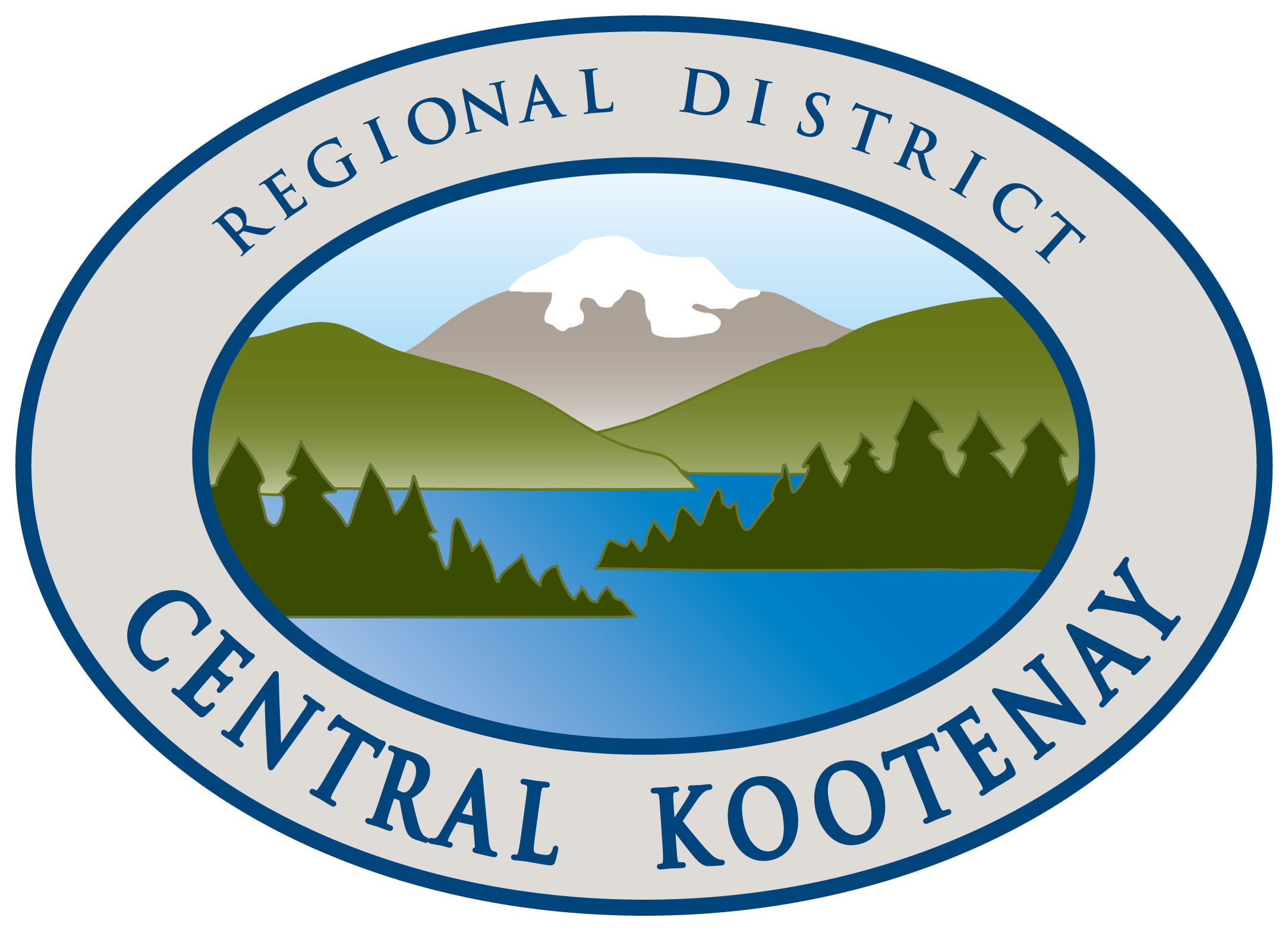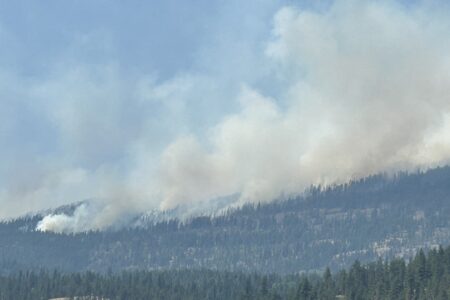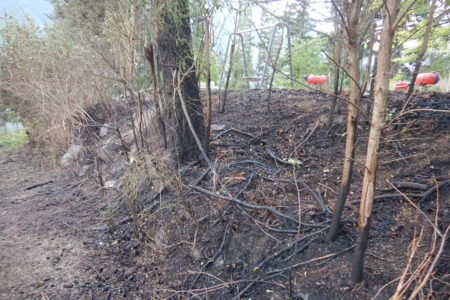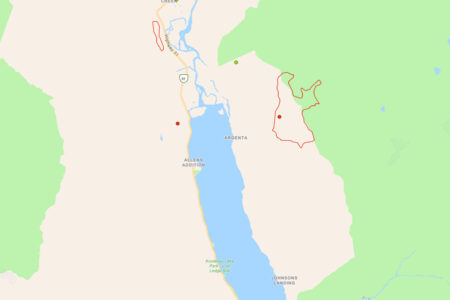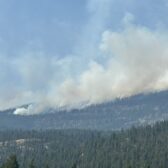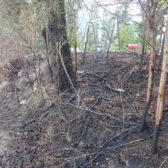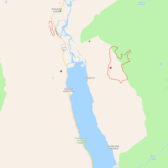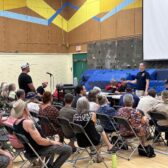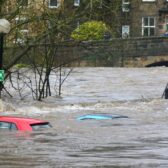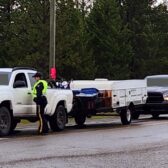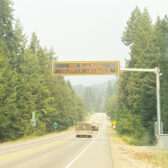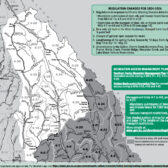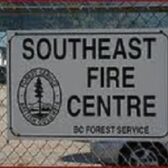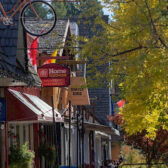Turn the page: regional district lengthens public process time for feedback climate actions
After taking heat from the community over taking action on a climate actions plan, the regional district is now embarking upon a year-long community engagement process to amass a clearer picture of public opinion on the matter.
The Regional District of Central Kootenay board of directors approved additional resources to support communication and engagement related to RDCK climate actions, it decided at its June 22 meeting.
“These funds will go towards putting on events, advertising, consultant support and hiring a one-year contract position to support the communication and engagement process,” noted a press release issued by the RDCK on Friday, June 23. “As well, the RDCK is launching an online public engagement platform to create a hub to share ideas, provide feedback and ask questions on projects and initiatives within the RDCK.”
The community open houses that were to take place this summer will instead be re-scheduled for fall from which regional district staff will collate all information and learning.
The board allocated up to $121,700 for the initiative.
• People can provide their feedback over the summer to climateaction@rdck.bc.ca.
Planning the plan
In February the work began to prepare a four-year climate action plan — starting in 2023 — to look ahead to climate action targets to reduce carbon pollution (greenhouse gas emissions) by 50 per cent below 2018 levels by 2030, and 100 per cent by 2050.
The climate action plan focused on community and corporate low carbon resilience.
“This approach supports communities in advancing towards a strong and adaptable future by bringing together reduction of carbon pollution (climate mitigation), community resilience (climate adaptation) and other local government priorities,” said RDCK sustainability planner, Paris Marshall Smith.
What was proposed by staff was to fund the development of a guiding plan, of which it is only a small portion of the overall budget, Smith said, which is actually taking action and engaging with the communities.
“This is what we see as the critical edge for climate action is to engage with community. And we do have numerous actions that we can build upon through the work with 100 per cent renewable energy, and we do intend to meet with small communities and have face-to-face conversations and understand how to create a rural, localized, RDCK appropriate plan,” she said.
The intent of the on-going climate action community engagement was twofold, Smith contended: First, to create an internally-embedded RDCK climate action culture that prioritizes low carbon and adaptive measures in all decision making.
“Second, to create an external climate action culture where residents see the RDCK as partner in climate action, a place for information, accountability and coordinated action, with the overall goal of RDCK residents, institutions, and industry having a greater motivation for climate action and commitment to 2030 science-based targets,” she said.
Enough is enough
In March over half (11) of the 20-person board of directors for the RDCK felt enough planning had been done on climate change action and that the development of another — the 2023-26 Climate Action Plan — was too much.
The action needed to be put into climate action, not more planning, said RDCK board chair Amiee Watson at the time. The money proposed for the plan — $80,000 — could be used to put some aspects of prior plans into practice, she explained.
“We have a lot of plans … and this $80,000, from my perspective, needs to go to action, not to more planning. I feel we have strategized and planned for a decade … and we have a lot of actions to act on, so I’m not in favour of another plan,” she said.
Watson pointed to the already completed state of climate action plan, climate action policy and the Renewable Kootenay Plan — that had two years of documentation on public engagement and committee meetings that identified the RDCK needs.
“I don’t want us to repeat that work, and I am very concerned that when we go to consultants that don’t understand the rural context, we end up in the same position,” she said. “I don’t disagree that we need a good plan, but what I disagree with is we keep engaging and planning and not acting. We have a lot of information to act upon, I don’t want to engage the public again.”
An RDCK staff report presented the budget for the development of the 2023-2026 climate action plan and community engagement strategy, with the strategy informing the four-year implementation of the plan. All costs were to be paid from the CARIP funds.
However, with weighted voting factored in, the nine voices in favour of the latest plan were enough for it to see the light of day.
The reason staff was proposing putting another plan together was that, currently, it did not have a plan in place to use as a state of climate action tool, said Sangita Sudan, RDCK manager of Development Services.
“We don’t have a plan that provides objectives and strategies on how to get there,” said Sudan.
Area E director Ramona Faust said the RDCK formulated a climate action plan in 2010 but 12 years later it needed to be updated.
“It is likely time to set some clear goals and objectives that the community can tick off or get involved, and innovators can come forward,” she said. “Conditionally I agree with this, but there is some nuance missing.”
Keeping on
In late April it was decided that public engagement on regional district climate actions would continue after nearly 100 people showed up at the April 20 regional district board meeting to raise concerns over a lack of engagement.
As a result of the public display, the board of directors supported a request to delay adoption of the RDCK Climate Actions plan to the Aug. 17 board meeting to allow for continued public engagement.
This meant the regional district staff would set up more public consultations in communities throughout the RDCK in order to “engage residents on the Climate Actions plan and respond to all questions from residents.
The Climate Actions plan is a four-year plan with a scheduled review at year two (2025) and is focused on identifying and finding solutions for climate action that reflect the needs of RDCK residents.
Rolling it back
In May, citing fear of intimidation, a series of open houses planned by the regional district to discuss climate action recommendations has been cancelled.
The decision was made to provide RDCK staff members “with additional time to present recommendations for a revised timeline for public consultation.”
The regional district chief administrative officer, Stuart Horn, said the move to cancel the open houses — scheduled to take place between May 23 and July 5 — was made in response to concerns that the open houses would not be a safe and respectful environment for all participants to share constructive feedback.
“We value the input from the public and want to ensure all members of the community have a chance to participate without the fear of intimidation,” Horn said at the time. “(B)ut at this time postponing the open houses is the responsible course of action.”
The intent was to allow regional district staff to set up more public consultations in communities throughout the RDCK in order to “engage residents on the Climate Actions plan and respond to all questions from residents.”
The Climate Actions plan is a four-year plan with a scheduled review at year two (2025) and is focused on identifying and finding solutions for climate action that reflect the needs of RDCK residents.
The plan in a nutshell
The Climate Action Plan for 2023-2026 will add to the RDCK’s climate action portfolio by identifying actions that will be taken in pursuit of carbon pollution reduction goals.
An annual review (State of Climate Action) and a four-year development cycle creates a responsive framework that can integrate emerging technology and capabilities.
“As well, the plan will identify barriers that currently limit climate action progress and more clearly demonstrate when they will be addressed,” wrote Smith in her report.
The plan follows the same structure as the 10 pathways of state of climate action and will:
• corporate climate mitigation, conservation and energy efficiency;
• community (RDCK) climate mitigation, conservation and energy efficiency;
• climate adaptation, preparedness and resilience;
• climate action culture;
• project background research, planning and inventory development February to April 2022. This includes background research, greenhouse gas emissions inventory review and refinement; and
• climate action community engagement May 2022 to December 2026 May 2022 – September 2022.
Source: RDCK April 20 agenda
Deeper dive
• The draft action plan — RDCK Climate Actions — and the accompanying climate action workbook (Climate Action workbook) are available for comment.
• Check the climate action webpageor follow RDCK’s Facebookand Twitterpages for the latest updates.
• Information on how to get involved and additional related events will be posted to the RDCK Events Calendar.
Any feedback on the RDCK Climate Actions: please click here to submit your responseor email ClimateAction@rdck.bc.ca.
Taking it to the streets
Between September 2022 and April 2023 the draft RDCK Climate Actions was shared with residents, First Nations, community groups and member municipalities through six online community sessions, two in-person community sessions, two radio interviews and over 15 phone conversations.
“These conversations were with residents across the RDCK and largely relayed a positive response to the plan,” said Marshall Smith.
As requested, RDCK staff also met with individual groups to hear their specific concerns and questions.
“This shorter less intensive period of engagement was endorsed by the board based on an understanding that residents were over-engaged — due to meetings about FireSmart, resource recovery, official community plans, new development permit areas etc. — and, that given the many years of discussion and engagement regarding climate action, it would be best to avoid a full engagement,” said Marshall Smith.
“In light of this, it should be noted that trying to balance the consultation pendulum is tricky and will elicit a predictable response – a low level of engagement will be met with criticism, by some, for lack of time to review and participate; and a high level of engagement will be met with criticism, by some, for being too expensive, too much time and too onerous.”
Source: RDCK April 20 agenda



